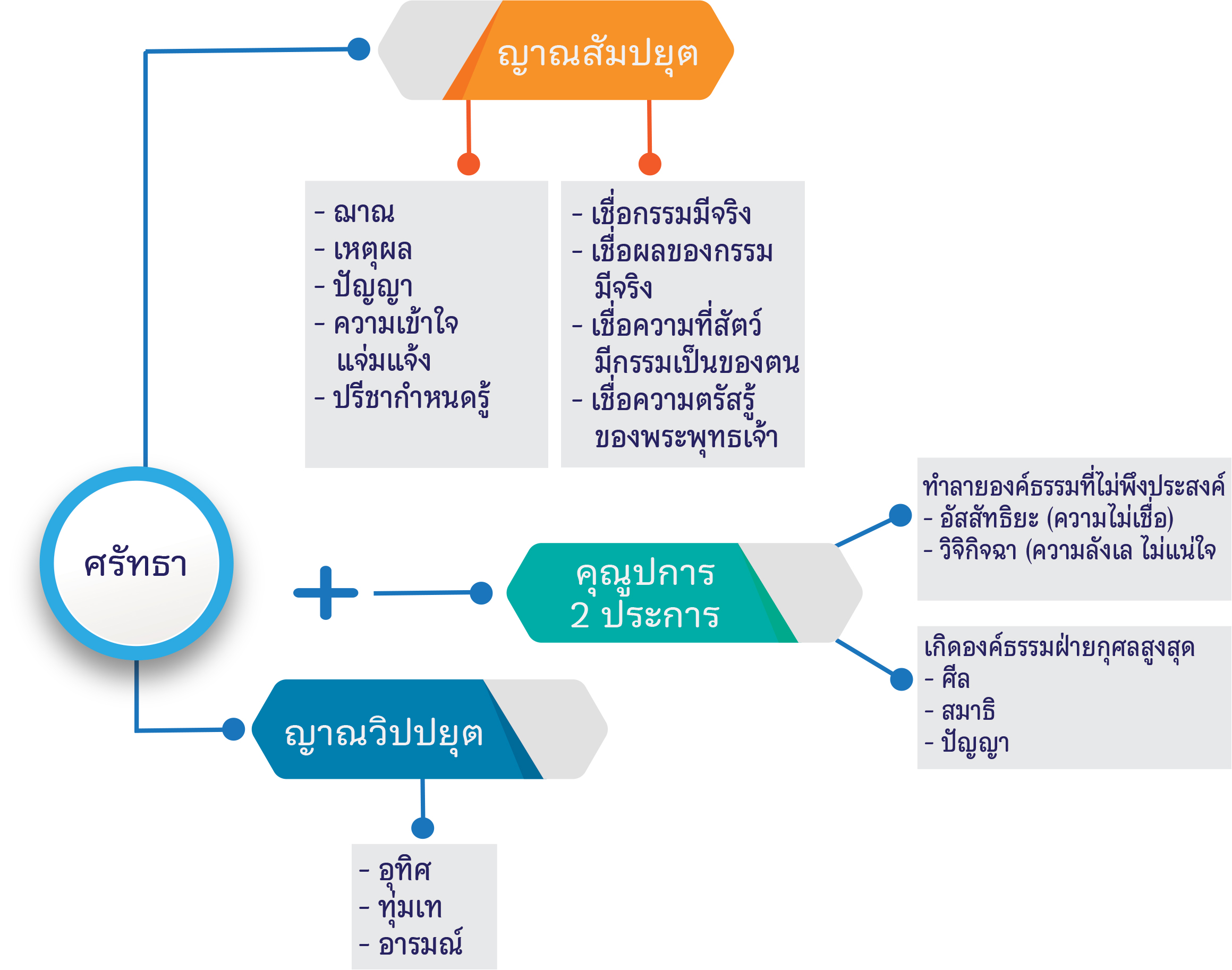Saddha in this Collection of Buddhist Scriptures Aims
Main Article Content
Abstract
Analysis of Saddha in this collection of Buddhist scriptures
have a purpose to study the concept of Saddhā in Buddhist scriptures. and to analyze the information obtained to show the value of faith in Buddhist scriptures. And it can be the righteousness presented in the teachings of Buddhism has two aspects: the righteous disposition of sampannayatana (accomplished in the mind) and the righteous disposition of vippannayatana (accomplished in discernment). However, Buddhism emphasizes the righteousness that encompasses both disposition and wisdom. Righteousness holds significant virtues in two aspects: firstly, it serves to eradicate undesirable qualities, namely asassatthiya and avijjā (non-virtuous mental states), preventing their arising and cultivating clarity of mind. Secondly, righteousness functions as a catalyst for the emergence of meritorious qualities, including generosity, happiness, morality, concentration, and wisdom. It plays a crucial role in creating opportunities for the manifestation of desirable qualities, allowing individuals to develop themselves through wisdom to attain the ultimate goal in life.
Article Details

This work is licensed under a Creative Commons Attribution-NonCommercial-NoDerivatives 4.0 International License.
เพื่อให้เป็นไปตามกฎหมายลิขสิทธิ์ ผู้นิพนธ์ทุกท่านต้องลงลายมือชื่อในแบบฟอร์มใบมอบลิขสิทธิ์บทความ ให้แก่วารสารฯ พร้อมกับบทความต้นฉบับที่ได้แก้ไขครั้งสุดท้าย นอกจากนี้ ผู้นิพนธ์ทุกท่านต้องยืนยันว่าบทความ ต้นฉบับที่ส่งมาตีพิมพ์นั้น ได้ส่งมาตีพิมพ์เฉพาะในวารสาร วิชาการธรรม ทรรศน์ เพียงแห่งเดียวเท่านั้น หากมีการใช้ ภาพหรือตารางของผู้นิพนธ์อื่นที่ปรากฏในสิ่งตีพิมพ์อื่นมาแล้ว ผู้นิพนธ์ต้องขออนุญาตเจ้าของลิขสิทธิ์ก่อน พร้อมทั้ง แสดงหนังสือที่ได้รับการยินยอมต่อบรรณาธิการ ก่อนที่บทความจะได้รับการตีพิมพ์References
ผาสุก มุทธเมธา. (2535). คติชาวบ้านกับการพัฒนาคุณภาพชีวิต (ฉบับปรับปรุง). กรุงเทพฯ: โอ.เอส. พริ้นติ้ง เฮ้าส์.
พระธรรมปิฎก (ป.อ.ปยุตฺโต). (2541). พระพุทธศาสนาในฐานะเป็นรากฐานของวิทยาศาสตร์. กรุงเทพฯ: มหาจุฬาลงกรณราชวิทยาลัย.
พระพรหมคุณาภรณ์ (ป.อ.ปยุตฺโต). (2552). พจนานุกรมพุทธศาสตร์ ฉบับประมวลธรรม. (พิมพ์ครั้งที่ 17). กรุงเทพฯ: จันทร์เพ็ญ.
พระอุดรคณาธิการ (ชวินทร์ สระคำ) และจำลอง สารพัดนึก. (2530). พจนานุกรม บาลี-ไทย ฉบับนักศึกษา. กรุงเทพฯ: เรืองปัญญา.
มหาจุฬาลงกรณราชวิทยาลัย. (2539). พระไตรปิฎกภาษาไทย ฉบับมหาจุฬาลงกรณราชวิทยาลัย. กรุงเทพฯ: มหาจุฬาลงกรณราชวิทยาลัย.
มหามกุฏราชวิทยาลัย. (2534). พระไตรปิฎกพร้อมอรรถกถา แปล ชุด 91 เล่ม. กรุงเทพฯ: มหามกุฏราชวิทยาลัย.

